Robert Porter (January 29, 1833 - July 27, 1901) was a Canadian Member of Parliament for the riding of Huron West under the Liberal-Conservative Party.

The prime minister of Canada is the head of government of Canada. Not outlined in any constitutional document, the office exists only per long-established convention. Under the Westminster system, the prime minister governs with the confidence of a majority of the elected House of Commons; as such, the prime minister typically sits as a member of Parliament (MP) and leads the largest party or a coalition of parties. The prime minister is appointed by the monarch's representative, the governor general, and, as first minister, selects other ministers to form the Cabinet, which the prime minister chairs. Constitutionally, executive authority is vested in the monarch, but, in practice, the powers of the monarch and governor general are nearly always exercised on the advice of the Cabinet, which is collectively responsible to the House of Commons. Canadian prime ministers are appointed to the Privy Council and styled as the Right Honourable, a privilege maintained for life.

The Statute of Westminster 1931 is an act of the Parliament of the United Kingdom that sets the basis for the relationship between the Dominions and the Crown.
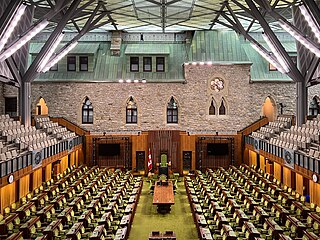
The House of Commons of Canada is the lower house of the Parliament of Canada. Together with the Crown and the Senate of Canada, they comprise the bicameral legislature of Canada.
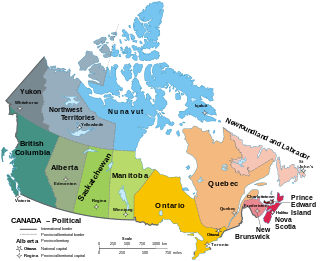
Canada has ten provinces and three territories that are sub-national administrative divisions under the jurisdiction of the Canadian Constitution. In the 1867 Canadian Confederation, three provinces of British North America—New Brunswick, Nova Scotia, and the Province of Canada —united to form a federation, becoming a fully independent country over the next century. Over its history, Canada's international borders have changed several times as it has added territories and provinces, making it the world's second-largest country by area.

The Parliament of Canada is the federal legislature of Canada, seated at Parliament Hill in Ottawa, and is composed of three parts: the King, the Senate, and the House of Commons. By constitutional convention, the House of Commons is dominant, with the Senate rarely opposing its will. The Senate reviews legislation from a less partisan standpoint and may initiate certain bills. The monarch or his representative, normally the governor general, provides royal assent to make bills into law.

Parliament Hill, colloquially known as The Hill, is an area of Crown land on the southern bank of the Ottawa River that houses the Parliament of Canada in downtown Ottawa, Ontario, Canada. It accommodates a suite of Gothic revival buildings whose architectural elements were chosen to evoke the history of parliamentary democracy. Parliament Hill attracts approximately three million visitors each year. The Parliamentary Protective Service is responsible for law enforcement on Parliament Hill and in the parliamentary precinct, while the National Capital Commission is responsible for maintaining the nine-hectare (22-acre) area of the grounds.

The Senate of Canada is the upper house of the Parliament of Canada. Together with the Crown and the House of Commons, they compose the bicameral legislature of Canada.

A Commonwealth realm is a sovereign state within the Commonwealth that has Charles III as its monarch and ceremonial head of state. All the realms are independent of each other, although one person, resident in the United Kingdom, acts as monarch of each. Except for the UK, in each of the realms the monarch is represented by a governor-general. The phrase Commonwealth realm is an informal description not used in any law.
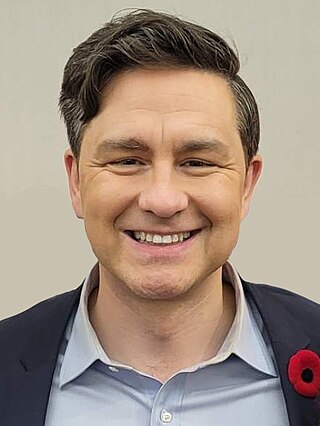
The leader of the Official Opposition, formally known as the leader of His Majesty's Loyal Opposition, is the politician who leads the Official Opposition in Canada, typically the leader of the party possessing the most seats in the House of Commons that is not the governing party or part of the governing coalition.
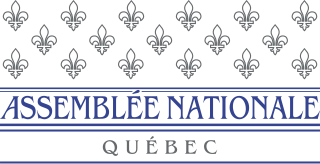
The National Assembly of Quebec is the legislative body of the province of Quebec in Canada. Legislators are called MNAs. The lieutenant governor of Quebec and the National Assembly compose the Legislature of Quebec, which operates in a fashion similar to those of other Westminster-style parliamentary systems. The assembly has 125 members elected first past the post from single-member districts.

In the Westminster system used in many Commonwealth realms, the King-in-Parliament is a constitutional law concept that refers to the components of parliament – the sovereign and the legislative houses – acting together to enact legislation.
A member of Provincial Parliament (MPP) is an elected member of the Legislative Assembly of the Canadian province of Ontario. Elsewhere in Canada, the titular designation "Member of Provincial Parliament" has also been used to refer to members of the Legislative Assembly of Lower Canada from 1791 to 1838, and to members of the Legislative Assembly of Quebec from 1955 to 1968.

The 37th Canadian Parliament was in session from January 29, 2001, until May 23, 2004. The membership was set by the 2000 federal election on November 27, 2000, and it changed only somewhat due to resignations and by-elections until it was dissolved prior to the 2004 election.
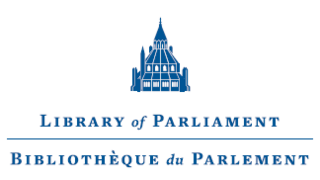
The Library of Parliament is the main information repository and research resource for the Parliament of Canada. The main branch of the library sits at the rear of the Centre Block on Parliament Hill in Ottawa, Ontario. The library survived the 1916 fire that destroyed Centre Block. The library has been augmented and renovated several times since its construction in 1876, the last between 2002 and 2006, though the form and decor remain essentially authentic. The building today serves as a Canadian icon, and appears on the obverse of the Canadian ten-dollar bill.

The 36th Canadian Parliament was in session from September 22, 1997, until October 22, 2000. The membership was set by the 1997 federal election on June 2, 1997, and it changed only somewhat due to resignations and by-elections until it was dissolved prior to the 2000 election.
An independent, non-partisan politician or non-affiliated politician is a politician not affiliated with any political party or bureaucratic association. There are numerous reasons why someone may stand for office as an independent.
The Legislative Assembly of the Province of Canada was the lower house of the Parliament of the Province of Canada. The Province of Canada consisted of the former province of Lower Canada, then known as Canada East, and Upper Canada, then known as Canada West. It was created by The Union Act, 1840.

A member of Parliament is a term used to describe an elected politician in the House of Commons of Canada, the lower chamber of the bicameral Parliament of Canada.